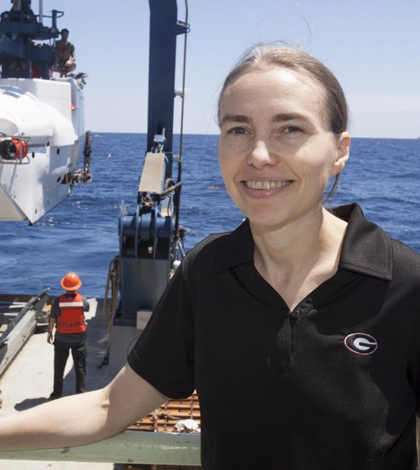Anaerobic Process Regulates Methane Production In Freshwater Wetlands

Samantha Joye is a professor of marine sciences at the University of Georgia. (Credit: Todd Dickey / University of Georgia)
Freshwater wetland methane production has an unexpected gatekeeper, according to a recent press release from the University of Georgia. It turns out that the production hinges on anaerobic methane oxidation, which is in turn regulated by freshwater microbes.
Although researchers knew of the existence of the anaerobic methane oxidation process, they had previously underestimated its importance. If it weren’t for the microbially regulated process, scientists say there would be 30 to 50 percent more methane released into the environment.
Three different states’ wetlands were part of the multi-season study: the Florida Everglades, a tidal freshwater land off the coast of Georgia and Acadia National Park in Maine. The new study is likely to have effects on developing future greenhouse gas models, researchers note.
Researchers had underestimated the anaerobic methane oxidation process because they tied it to the presence of sulfur, of which freshwater typically has little. However, researchers feel that the process may be biochemically unique for the freshwater microbes, and may not resemble the same process in their marine microbial counterparts.
Top image: Samantha Joye is a professor of marine sciences at the University of Georgia. (Credit: Todd Dickey / University of Georgia)











0 comments